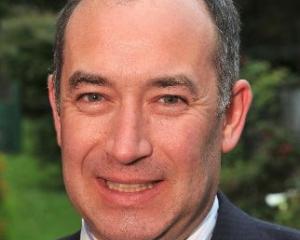Yesterday, too, came confirmation from the Government that it was considering a contribution.
The council decision, 10 votes to five, came after more than three hours of private debate, followed by a longer public debate before a full public gallery clearly opposed to the $198 million project.
The decision came despite a report released last week which said funding shortfalls for the project could be as high as $35 million, including an as-yet unsuccessful attempt by the council to find a $20 million reduction in the rates impost from the stadium.
The Carisbrook Stadium Trust also required underwriting of $15 million for money it expects later to receive for seating packages.
The project was already over budget by $7.7 million because of additional land costs, and the Community Trust of Otago offered $3 million less than the $10 million requested.
The meeting took a surprise twist when it finally went public at 2.40pm, with Mayor Peter Chin revealing details of a phone call from Deputy Prime Minister Bill English's office, which confirmed the Government would consider a contribution.
Council chief executive Jim Harland preceded the councillors' debate with a summary of the work done on the stadium that was somewhat more positive than his report to the council, released last week.
Mr Harland said most of the resolutions voted for on March 27 last year, and updated later in the year, had been resolved by the trust.
The "big question" was one of funding. Overall, the cost to ratepayers was unchanged, with the average household in Dunedin to pay $66 a year for the next 20 years.
Mr Harland said it was now a matter for the council to decide whether to proceed, and if it did, with what terms and conditions.
Mr Farry updated the meeting on seating sales: the number of lounge memberships contracted had risen from 382 to 432, corporate suites from nine to 11, open club reserves from three to five, and founders' club seats from five to six.
That brought the total to $27.7 million, above the target of 27.3 million.
Moving a set of six resolutions, seconded by Deputy Mayor Syd Brown, Mr Chin said the council had been working on the stadium project for two years.
"I'm personally in support of this project going ahead if it is able to be funded, and the resolutions can be fulfilled in a way I find acceptable."
Cr Teresa Stevenson said she supported investment in a project to stimulate the economy, just not the stadium.
Cr Paul Hudson said the council had a role to play in keeping residents in employment and money circulating in the local economy, which would also save the Government money in fewer unemployment-benefit payments.
The alternative was to allow the city to begin a "spiralling downturn".
Cr Dave Cull said he was most worried by "extremely risky" revenue predictions.
The capital funding had come up short by $45 million, and the community had shown through protests and through not buying seating it was not fully behind the project.
Cr Colin Weatherall said he would support the stadium as long as no further ratepayer money went towards shortfalls, something Mr Chin assured him would not happen.
Cr Kate Wilson took issue with Cr Hudson's suggestions the stadium was needed for jobs, and said jobs lost in Dunedin would not necessarily transfer to construction.
Cr Wilson was also concerned about operating costs, noting all the other "wonderful venues" in the city had come to the council to ask for money since she had been on the council.
Cr Michael Guest accused councillors who opposed the stadium of "creative negativity".
He could not vote against a stadium that would cost the average ratepayer $66 a year, plus the cost of the Otago Regional Council rates.
"This will be a wonderful 100-year project."
Cr Fliss Butcher disagreed, and said the issue for her was priorities. It was more important to future-proof the city against climate change and peak oil.
Cr Bill Acklin said the stadium would give a "wow factor" to Dunedin, at a time the city needed one so it would be taken seriously by the rest of the country.
Cr Chris Staynes said now was not the time for the project. People on fixed incomes would find the extra cost a burden.
Cr Richard Walls said he had an emotional investment in Carisbrook dating back 50 years, but the debate was about the future enjoyment of people in the city and to build on its "unparalleled" sporting facilities.
"Are the risks affordable? Yes, they are. Is the project affordable, in debt and everything else? Yes, it is."
Cr Syd Brown supported the project, but wanted to see a re-examination of how the debt repayments could be spread over a longer period.
"We are not building this for our benefit. We are building this for our grandchildren and future generations."
Cr Neil Collins said the city's pioneers had the fortitude to invest in ambitious facilities such as the Dunedin Town Hall, and subsequent civic leaders had committed to projects such as the Edgar Centre and Dunedin Ice Stadium.
He said the benefits of the Otago Stadium would be to leave another city asset for future generations.
Cr John Bezett said the debate had always been one between the optimists and the pessimists, but he supported efforts to retain young people and jobs in the city, and accepted the financial advice of expert advisers who said the project was affordable.
Cr Andrew Noone said the stadium would be another building that would enhance the city as a place to visit.
Mr Chin and Crs Brown, Hudson, Weatherall, Guest, Acklin, Walls, Collins, Bezett and Noone voted for the recommendation to commit to the stadium, while Crs Stevenson, Cull, Staynes, Butcher and Wilson voted against.






